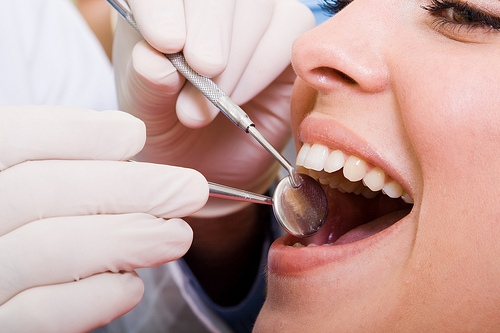The Top Ten Questions about Oral Surgery
June 13th, 2024

If you or someone you know is going to require oral surgery, you may have many questions about what exactly will occur during the surgery, what to do (or not do) before and after surgery, and what your options might be. Here, we’ve covered the most common ten questions pertaining to oral surgery.
What is Oral Surgery?
Maxillofacial and oral surgeries is a dental practice consisting of the diagnosis and the surgical treatment of injuries, defects of the mouth, face, jaw and related structures, and of diseases.
Will I be Awake During the Procedure?
It depends on the actual procedure, but many of the more intensive surgeries require that you be anesthetized, or put to sleep for the duration of the procedure. Wisdom tooth removal and dental implant procedures are examples where anesthesia may be required.
What are Dental Implants?
A dental implant is used to replace missing teeth. A titanium fixture is implanted into the jaw if there is sufficient bone to provide anchorage for the implants.
How Long do Implants Last?
With proper care and good hygiene practices, a dental implant can last a lifetime.
Is the Dental Implant Procedure Painful?
Most patients are surprised to find that it was less painful than they expected. Regular Tylenol® is often enough to control the discomfort until it fades after a few days.
What are Wisdom Teeth?
Many people have more teeth than they have room for in their jaw. Wisdom teeth are the "third molars" and they try to erupt into a jaw that is too small when children are in their late teen years.
Why do Wisdom Teeth Need to be Removed?
Today most wisdom teeth end up getting impacted because they have nowhere to go thanks to a mouth full of healthy teeth. When they are not in a normal position they can cause discomfort, pain and even damage to other teeth or nerve endings. Therefore, if your X-rays show that your wisdom teeth are impacted, we may recommend their removal.
Will I Miss Work Due to Oral Surgery?
Taking one day off for the surgery and rest afterward is advised. We'll let you know on a case-by-case basis if more time off is needed, though after most oral surgeries people can go back to work the next day.
Is Exercise a Problem After Oral Surgery?
We usually recommend a week of rest before resuming your exercise regimen. If we think more rest would be better, then we'll let you know.
When Can I Eat After Surgery?
In most cases, you can eat after you get home from the surgery, and soft foods are best.
If you have any specific questions or concerns in the Kingston area, we are here to help, and put your mind at ease. Please contact our team at Mid-Hudson Oral and Maxillofacial Practice. We’d love to hear from you!



